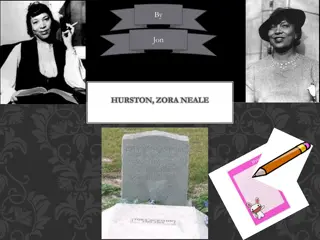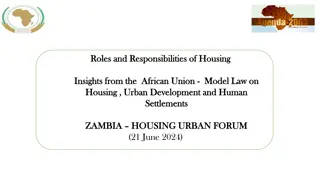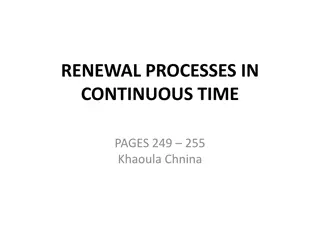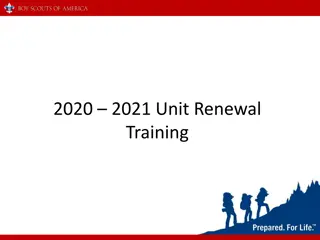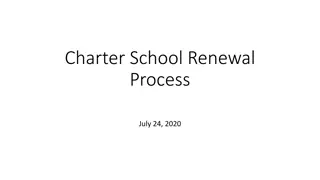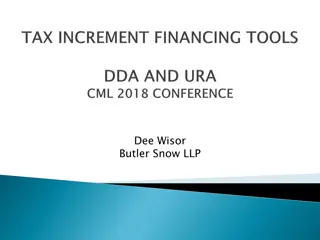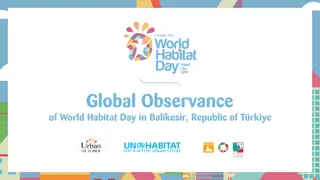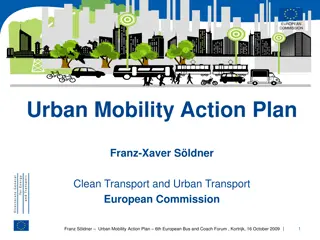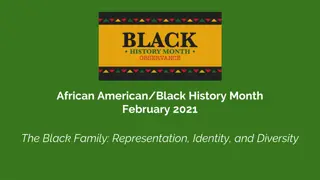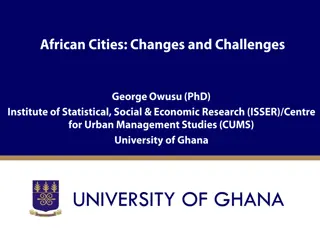Insights into Urban Renewal and African American History in Danville
Delve into the impact of urban renewal on communities in Danville, Kentucky, and the efforts to document African American history in the region. Learn about the challenges faced by residents as they were pushed out and how Centre College's expansion influenced urban development. Explore the motivation behind researching local history and the importance of highlighting Black family records. Discover parallels between Danville's urban renewal history and similar experiences in other cities.
Download Presentation

Please find below an Image/Link to download the presentation.
The content on the website is provided AS IS for your information and personal use only. It may not be sold, licensed, or shared on other websites without obtaining consent from the author. Download presentation by click this link. If you encounter any issues during the download, it is possible that the publisher has removed the file from their server.
E N D
Presentation Transcript
Comments to Student Questions By Michael J Denis, for Centre College, ANT110 Dr. Jeffrey Shenton
Rachael, Bo, Marshall-1: Where did the communities move to when they were pushed out? Did they move as a community or individually? Generally, they moved individually to other areas of Danville, Boyle County, or even outside the county. That is why the sense of community was damaged, if not destroyed. Moving individually, they couldn t keep the community together. What impact did Centre College have on urban renewal? Other than the 7th Street project, not much effect really. A small number of people, from what I have been told, resented the idea that they gave up their homes for Centre s expansion BUT it was nowhere near the effect that the University of Kentucky or other renewal projects had. And after 7thStreet, none of the projects were any near Centre, and thus were not affected by Centre.
Rachael, Bo, Marshall-2: How did you collect your information and how did you choose what to focus on? Ironically, it was a Centre student with whom we in the DBCAAHS worked, Victoria DeMartile who focused me. I met Tori outside the Boyle County Courthouse one day, and we got to talking about urban renewal it was also she who encouraged me to write a history of Blacks in Boyle County. We discussed what was essentially urban destruction in Danville and Cincinnati, where she was from. The information came, in almost every case, from the digital archives of the Danville Advocate Messenger, which had just come online at Newspapers.com. Without that resource, I would have been totally handicapped. How does the history of urban renewal in Danville compare to other places? It is very similar to many other places where large numbers of Blacks live. Black neighborhoods were blighted and so they were easy targets for urban renewal. A very dear friend of mine who grew up in Crawfish Bottom in Frankfort, told me that The Craw was destroyed by moneyed white interests in Franklin County, and that the same effects urban renewal had in Danville were seen in Frankfort. Instead of Danville or Frankfort substitute the name of nearly any city with sizable Black populations.
Will, Shelby, Clayton-1: What intrigued you to pursue information on Danville's history? Wherever I have lived, I have pursued local and family history information. When I began teaching in Oakland, Maine, I began researching Oakland history, and still maintain the website for that town s historical society. So it was natural on moving to central Kentucky, to research Danville and Boyle County s local and family history. At what point did you realize that you wanted to study African American history? When I moved here in 2007, I realized very quickly that white family records had been researched and published, but there was a notable lack of Black family records. I decided to change that. One way was to join with Michael Hughes and others in organizing the Danville Boyle County African American Historical Society in 2013. I was given a chance to teach The African American Experience at the Danville Campus of Eastern Kentucky University, and I knew researching Black history was the right decision when I had about 10 students in that class, all over 65, and all Black, tell me that they never knew about many of the ideas, people, concepts, and history I was teaching.
Will, Shelby, Clayton-2: Why did you decide to retire to Danville from Maine? My partner s son moved to Kentucky in the 1990s. We cam down to visit him, and I fell in love with Kentucky immediately. When I retired in 2007, I had decided that I would live within 5 miles of downtown Danville. And now I live within 5 miles of downtown Danville. This area does have the four seasons I loved in Maine, but instead of 80+ inches of snow and days with below 0 temperatures, we have at most 20 over the whole winter. How has Centre College changed throughout the time you have studied its tie in with urban renewal to now? I think Centre has begun to recognize its history in Danville as being part of the white community. And I think that Centre wants to recognize the role that Blacks have played in Danville and Boyle County history, as well as at Centre. Remember, many of the Black residents of Danville worked at Centre, some with responsible positions. I would LOVE to see a diversity center at Centre that would tell the story of Blacks at the college.
Kanbe, Seth, Jason-1: Since Centre College invested money to 7th Street, we notice that this was never apparent to our community especially present day, are there ways Centre as a whole can address this issue about Urban renewal and displacement of the Black Community? This set of questions from you folks is doing about all you can do now. Urban renewal was now so long ago that the present generation of under 50 years old doesn t even remember the before. There is a fear of bringing up the unsettling past, as well. So maybe just learning about what happened in the past, is the best way to deal with it. Centre wasn t responsible for the tragedy that became urban renewal, so simply by acknowledging the harm which was done is probably the appropriate response. Don t accept blame for something you didn t do. What are ways Danville could have approached the Urban renewal differently that was better for the black community? Of course, considering the needs of the Black community would have helped. If the buildings had actually been renewed that would have helped, but instead the only buildings that were restored and repaired were historical buildings that pre- dated the rise of Second Street, for instance. The Goldsmith House, Grayson s Tavern, and the Watts-Bell and Fisher houses were restored they were all owned by whites (though probably BUILT by Blacks). But given the times, sadly, I don t think anything different would have been possible.
Kanbe, Seth, Jason-2: What were the immediate social differences you noticed in moving from Maine to Danville? People were polite. Young teenage boys opened doors, and said you re welcome, sir ! Certain topics were not discussed in polite society. Never be critical of anyone because they are probably related to someone you know. And of course, the he s a good Christian which I NEVER heard in Maine (the second least religious state in the country). I learned that bless your heart has two very distinct and different meanings, and that different vocabulary is important cart / buggy; check / ticket; pop / soda. People here pronounce the letter R which in Maine is only pronounced if it is at the beginning of a syllable. Did the opinions in both places influence your opinion or have you always had your own? I have learned since moving here that my opinions on urban renewal and integration were totally at odds with what those ideas meant to the Black community. I used to think that both were good things. I have come to realize that both destroyed Black society in so many ways. Since seeing the same photos and film of the situation in Little Rock, AR, in 1954, that Bill Clinton saw (we re the same age), I like him, grew up not understanding how people could be treated differently simply because of skin color. So when I moved here, I was expecting to see a great deal of racism and prejudice fortunately, I did not note that in fact Maine has become more openly racist than what I see here in Kentucky.
Matthew, Sherice, Chandler-1: What was the first issue that you noticed that had motivated you to study the African American History of Danville? The lack of Black records that had been published. Every publication of Boyle County history was basically a white history, with Blacks relegated to lowly positions. I was going to change that. Was there Urban Renewal in your hometown or the town that you grew up in? Yes, there was, but since Maine is the whitest state in the US, it was not racist, or racially motivated. Urban renewal simply took the older, more run-down buildings in my home town, and tore them down.
Matthew, Sherice, Chandler-2: How did urban renewal affect Danville as a whole economically? The tourist draw that Constitution Square created has definitely benefited Danville economically. As a tourist attraction, people come here, eat in our restaurants, stay in our motels, and patronize our stores. Indeed, at the beginning of urban renewal, the Chamber of Commerce seemed to see dollar signs when they discussed urban renewal. What would you say is the single most vindictive act that Danville has done in its history? I have not come across anything that I would call specifically vindictive in the sense of getting even at least. There were, of course, disagreements over integration, and urban renewal, but in general, I don t get a sense that that any of those disagreements were vindictive.
Stella, Emmy, Gage-1: You said that many of the residents of West Danville are deeply affected by Urban Renewal and to this day are unable to talk about what they experienced. Do members of other areas of Boyle County that faced Urban Renewal have the same reaction? Other than a general sense of regret over what was lost, there doesn t seem to be the same level of negativity. I have never spoken to anyone who experienced the 7thStreet or 2ndStreet renewal who was as vociferous or upset as several residents of West Danville with whom I have talked. How do you think being an outsider to the Danville community has influenced your view of urban renewal? I don t think so. My views on urban renewal changed after I moved here.
Stella, Emmy, Gage-2: Is there a comparable version of a modern Urban Renewal that afflicts communities in Danville today? Again, I don t believe there is anything like urban renewal having any effect on communities here. How do you think your point of view on all the issues and change going on would be different if you were placed in that time? Obviously, I have no idea what my POV would have been then. As I wrote earlier, my first impressions of urban renewal and integration were positive, so I could presume that I would have been a supporter of both in that time period. Knowing what I know now, I think I would be disappointed or even angered at my 1960s self.
Chase, Avi, Mason-1: Would you say that Centre in 1969 who would buy 65% of the land of the 7th Street Area is the same Centre, whose students helped bring light to the barber shop discrimination in the 1970 s? There is often a disconnect between college administration and the student body. I see the administration in 1969 as anxious to expand the campus, to build more buildings, and attract more students. But the discrimination case was largely a student-led (with faculty and administration support) movement, from what the principals in that event have told me. So in the 1969-1971 time period, we see the general disconnect, but it is not total. How were the areas selected for urban renewal (7th Street Area, West Danville Area, etc.) chosen? Based on what standards and reasons? Primarily, they were chosen because they were blighted. Now the reason for the blight never came out at the time. Often, Blacks were charged significantly more for rent than whites, with lower income. Too often, Blacks did not own the property where they were living, and thus could not build up the wealth needed to keep the properties up. So, the properties deteriorated over the years. Richard Rothstein, in The Color of Law, describes how federal, state, and local laws and ordinances segregated Blacks, and destroyed a chance they might have had to achieve The American Dream of home ownership.
Chase, Avi, Mason-2: Why were many of the small businesses unable to recover and grow stronger through this period? With integration, Blacks were now able to shop in white-owned stores which often carried a wider and deeper selection of merchandise than the Black stores, and at less cost. That alone would have doomed Black grocery stores. But Second Street was more than grocery stores. Restaurants, barber shops, taxi businesses, pool halls all continued to operate until their buildings were taken by urban renewal. They were not able to recover because their customer base was scattered throughout the city or county. Danville, unlike larger cities, doesn t have enough of a Black base to support certain businesses like lawyers, doctors, banks, theaters, or restaurants, and so when the business district was destroyed, Danville Blacks had to patronize whites.
Chase, Avi, Mason-3: How big of a role did Centre College play in the urban renewal process, outside of land that was directly purchased by them? The 7thStreet renewal project was really the only one that involved Centre, so there was no significant Centre role. You mentioned that the black community in West Danville still has trouble talking about this traumatic experience. Although it was damaging, do you feel that it is easier for Black people from other areas of urban renewal, such as 7th Street and South 1st and 2nd Street, to discuss urban renewal because there was at least a finished product? Those who were moved out of 7thStreet and South 1st and 2ndStreets didn t have to put up with the mess that those in West Danville had to deal with. It s one thing to have one s business taken by the city, so one ends up moving away, even if only a few blocks away. It s quite another to have one s property taken with inadequate recompense, to leave one with piles of dirt, no sewer connection as promised, and being forced to re-purchase one s own land at higher cost than what whites had to pay. I don t think it was as much a finished product as it was that people were moved out of the area and thus had little connection with after that.



